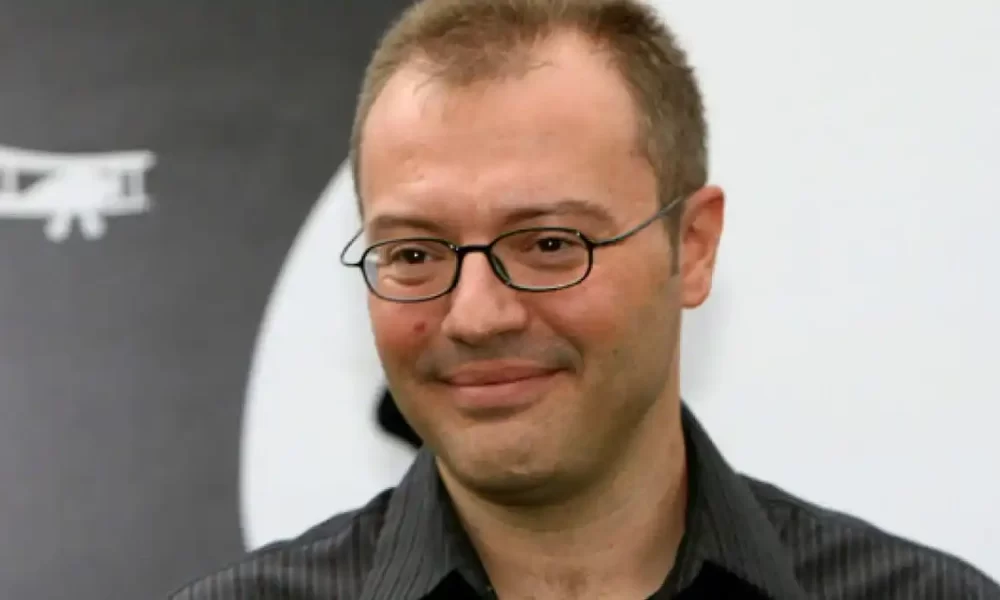
Born on November 4, 1968 in Palma de Mallorca, Spain, Daniel Monzon He has established himself as one of the most prominent directors and screenwriters of contemporary Spanish cinema. Beginning his career in film journalism, he stood out for his work in specialized magazines such as Fotogramas.
However, it was behind the camera where he found his true craft, releasing his first film as a director in 1999, which would mark the beginning of a filmography marked by notable versatility and a commitment to intriguing stories and well-constructed characters. Monzón's passion for the seventh art is palpable both in his films and in the interviews granted throughout his career.
The heart of the warrior
Daniel Monzón's film debut came with The heart of the warrior (1999), an adventure that intertwines reality with fantasy worlds through a young fan of role-playing games. From the beginning, the film demonstrates its ability to merge genres and create enveloping atmospheres. Although it was not a massive success at the box office, it served to position Monzón as a promising filmmaker capable of offering fresh and different proposals to the Spanish panorama of the time.
The biggest robbery ever told
In The biggest robbery ever told, released in 2002, Monzón explores comedy through a story centered on a robbery at the Prado Museum and the vicissitudes of a peculiar group of thieves. Although it included elements of humor and genre heistthe film did not achieve the expected impact, but it still reflected the Mallorcan director's narrative skill and eye for comedy.
The Kovak box
Delving into the mechanisms of suspense and science fiction, The Kovak box (2006) is a firm step forward in Monzón's career. This psychological thriller, starring Timothy Hutton Like a writer who finds himself trapped in an intricate web of mysteries, he shows a more mature Monzón, experimenting with greater narrative solidity and mastery of rhythm within the scope of the genre.
Cell 211
The definitive recognition came with Cell 211a powerful prison drama that became a critical and commercial phenomenon in 2009. The film, starring Luis Tosar, tells the story of a prison officer who is involved in a riot on his first day at his new job. With palpable tension and rawness, this film established Monzón as one of the most prominent Spanish filmmakers of the moment and earned him numerous awards, including the Goya Award for Best Director. He is frequently cited by experts and is the subject of studies in film schools.
The boy
Continuing with his desire to portray social aspects of Spain, The boy (2014) addresses the issue of drug trafficking in the Strait of Gibraltar. The film combines action and drama to offer an intense vision of youth and the difficult decisions that can shape the course of their lives. Acclaimed for its relentless pace and impeccable maritime chase sequences, this film reaffirmed Monzón's ability to direct intense stories rooted in a contemporary social reality.
Yucatan
Changing register again, Yucatan (2018) is a light comedy with intersecting plot lines that take place on a transatlantic cruise ship. This story about two rival musicians who compete for a million-dollar hit is surprising for its tonal change compared to the director's previous works, however it continues to reflect his skill in constructing memorable characters and directing stories with multiple protagonists.
Frequently Asked Questions about Daniel Monzón
What is Daniel Monzón's best film according to critics?
According to the majority of reviews and several recognitions received, Cell 211 It is considered the masterpiece of Daniel Monzón. This shocking prison drama has received praise for both its script and extraordinary performances, in addition to accumulating awards, including several Goyas.
Has Daniel Monzón worked in cinema outside of Spain?
Although Daniel Monzón is mainly known for his work within Spain, he has featured international actors in his films such as Timothy Hutton in The Kovak box. Until the cut of information for this article, his filmography as a director has been developed entirely in Spain.
What is Daniel Monzón's distinctive style?
Daniel Monzón's distinctive style can be understood by his ability to balance film genres and give his narratives a strong emotional and social punch. He tends to approach stories with intense backgrounds and complex characters, frequently positioning himself very close to genre cinema and making effective use of suspense and action to drive his stories.
Opinions about Daniel Monzón
Prominent figures in cinema have given their opinion about Monzón. The well-known actor Luis Tosar, who starred Cell 211commented: «Daniel has an innate talent for stretching the narrative to unsuspected limits; “Working with him is fully immersing yourself in the characters and the story.”. Likewise, the critic Carlos Boyero mentioned: «Monzón is one of those necessary rarities in Spanish cinema, a director capable of renewing genres and entertaining without underestimating the viewer». Both statements exemplify the respect that the director has garnered throughout his career, being recognized for his skill and creative depth.
Source: https://cinecritico.net/director/daniel-monzon/


